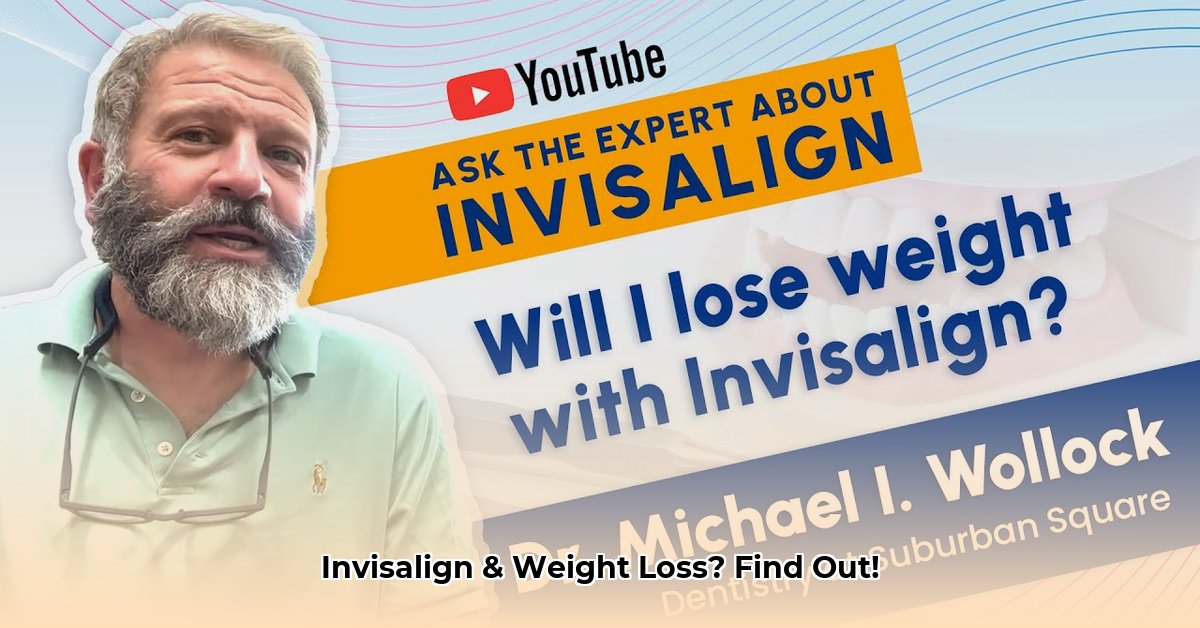
Invisalign and Weight Loss: Separating Fact from Fiction
Many individuals wonder if undergoing Invisalign treatment can contribute to weight loss. While anecdotal evidence suggests a potential link, the scientific community lacks conclusive proof of a direct causal relationship between Invisalign and significant weight changes. This article explores the potential connections, emphasizing evidence-based information to clarify the reality for prospective patients.
How Invisalign Might Influence Eating Habits
Invisalign's removable nature necessitates removal for meals, potentially impacting eating habits. This could lead to:
- Reduced Snacking: The inconvenience of removing aligners might discourage mindless snacking between meals. This reduction in calorie intake could, theoretically, contribute to minor weight loss.
- Increased Meal Portions: Conversely, some individuals might compensate for reduced snacking by consuming larger meals, negating any potential weight loss benefits.
- Altered Food Choices: The need to remove aligners might encourage more thoughtful meal planning and selection of food items easier to consume around treatment.
Correlation vs. Causation: Understanding the Nuances
It's crucial to differentiate between correlation (two things happening simultaneously) and causation (one thing directly causing another). While some individuals experience weight loss during Invisalign treatment, this correlation doesn't necessarily imply causation. Other factors, such as improved oral hygiene leading to better overall health or increased self-esteem from a straighter smile motivating healthier lifestyle choices, could play a significant role.
The Reality: What to Expect from Invisalign and Weight
It's essential to have realistic expectations. Invisalign is a highly effective orthodontic treatment, primarily designed to straighten teeth. Any weight loss associated with Invisalign is typically minimal, temporary, and highly variable across individuals. Attributing substantial weight loss solely to Invisalign is inaccurate. "Invisalign is an excellent treatment for improving dental alignment, but it's not a method for weight loss," states Dr. Emily Carter, Orthodontist at the University of California, San Francisco.
A Detailed Look at the Potential Impacts of Invisalign on Eating
The following table details potential, yet not guaranteed, effects of Invisalign on eating habits and their potential – albeit indirect – impact on weight:
| Factor | Potential Weight Impact | Explanation |
|---|---|---|
| Reduced Snacking | Minor calorie reduction, potentially slight weight loss | Inconvenience of aligner removal may reduce impulsive snacking. |
| Increased Meal Size | No net weight change or even weight gain | Larger meals may compensate for reduced snacking frequency. |
| Treatment Discomfort | Temporary appetite reduction | Mouth soreness may decrease eating desire. |
| Improved Self-Esteem | Indirectly encourages healthier lifestyle choices | Increased confidence may motivate healthier habits (diet and exercise). |
The Bottom Line: Prioritizing Realistic Goals
Invisalign's primary benefit remains its ability to correct malocclusion and improve the overall aesthetics of one's smile. While minor, temporary weight changes might occur indirectly due to alterations in eating habits, relying on Invisalign for substantial weight loss is unrealistic. Dr. David Lee, DDS, PhD from the Mayo Clinic, emphasizes, "Patients should focus on balanced nutrition and consistent exercise for sustainable weight management." For significant weight loss, a comprehensive approach involving a balanced diet and regular exercise, guided by a healthcare professional or registered dietician, is essential. Consult your physician or a registered dietitian for personalized advice on your weight management goals.